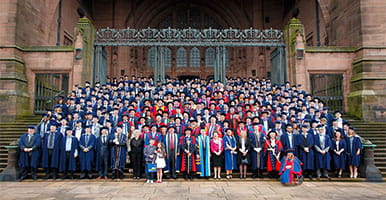Lawrence Challis OBE
Presented by Professor Frank Sanderson
Energetic promoter of the public understanding of science Professor Lawrie Challis, Emeritus Professor of Physics at the University of Nottingham and one of the UK's leading physicists, is an independent expert in the field of radio frequency radiation, with a particular focus in recent years on the possible links between mobile phones and health.
His involvement in the health effects of non-ionising radiation began in 1999 when he became Vice-Chairman of the Independent Expert Group on Mobile Phones and Health.
Since then he has taken a prominent national role as an advocate and facilitator of more research in this area, and at all times steadfastly maintaining an objective and independent stance, repeatedly stressing that his concern is about public health, not the wishes of Government or the profits of industry.
Lawrie Challis was born in the 1933 in the Kent town of Ramsgate. After being evacuated to Somerset during the War, he studied at Chatham House Grammar School in Ramsgate. There he excelled in the sciences and progressed from school to Merton College, Oxford, to study Physics in 1951.
He graduated with a First Class honours degree in 1954 and stayed on as a Senior Scholar and had his first experience of lecturing which he greatly enjoyed. He then spent time researching at the Clarendon Laboratory, Oxford, where he obtained a Doctor of Philosophy degree in 1958.
In 1959, he moved to the University of Nottingham to take up a post as Lecturer in Physics. By 1971, he was appointed to an established chair in Low Temperature Physics, and in 1994, he succeeded to the prestigious Lancashire-Spencer Chair of Physics.
During his distinguished academic career of almost 40 years at Nottingham, he also held several academic leadership positions:
- Head of the Department of Physics in the late 70s
- Dean of Science in the late 80s and
- From 1995 until his retirement from the university in 1998, Pro-Vice Chancellor, with a range of responsibilities including Teaching Quality, Students Services and International Student Matters
He has published over 230 papers, he has held visiting appointments in Australia, France, New Zealand and the USA, and he has been involved in the organising of international conferences in many countries, including Japan, the USA, Germany, Hungary, France, Belgium, Italy, Spain, and Russia.
He held many prestigious external appointments during his time at the University of Nottingham, including:
- Chairman of the Royal Society Government Grant Board for Mathematics and Physics
- Chairman of the Institute of Physics Low Temperature Physics Group
- Chairman of the Physics Committee of the Science and Engineering Research Council
- Board Member of the European Physical Society
He has also been the recipient of many awards:
- In 1994 he was awarded the Holweck Medal and Prize for research by the Institute of Physics and the French Physical Society
- In 1998 he received what is now known as the Klemens Award from the International Phonon Physics Conference
- And in 1996, he was awarded the OBE for services to scientific research
Throughout his career, he has been an energetic promoter of the Public Understanding of Science, giving many lectures to schools and university science societies.
Particularly noteworthy has been his campaign for proper recognition of George Green who was born in 1793 in Nottingham. He was a mathematical physicist, well-known to physics students world-wide for Green's function and Green's theorem. He was a windmiller for much of his life and had little formal education before the age of 40, making his academic achievements all the more impressive. Lawrie Challis led the campaign to restore Green's derelict windmill and to establish a hands-on science centre in the mill grounds.
On retirement, Lawrie Challis became Emeritus Professor of Physics, and later a Leverhulme Emeritus Fellow, at the University of Nottingham and has remained as busy as ever.
During the last 7 years, he has served as:
- Chairman of the European Science Foundation's Steering Committee for a High Magnetic Field Facility
- Member of the Advisory Group on Non-Ionising Radiation (AGNIR
- Member of the Home Office Committee dealing with health issues concerning the new mobile phone system TETRA for police and other emergency services
- Chairman of the Management Committee of the Mobile Telecommunications Research Programme
- First, vice chairman and then chairman from 2002 of the Independent Expert Group on Mobile Phones and Health that produced the Stewart Report in 2000
In this role as an expert advisor on mobile phone mast safety, he has acknowledged that transmitters have still not been proven to be safe, and he has successfully campaigned for more funding for research in this area from government and from private industry.
The possible health risks incurred by using mobile phones themselves are of more concern to Prof Challis who says, "I am more worried about having a phone two centimetres from my head than a nearby mast". And he is even more worried by the level of mobile phone use among children, and argues that more needs to done towards educating youngsters about limiting the time they spend on phones.
Although officially retired, Lawrie Challis's work-life balance doesn't seem to have changed that much. He has however relocated to deepest Devon, where any precious spare time is spent sailing and walking with his wife, Jennifer. Professor Challis is a most distinguished academic who has sustained an outstanding contribution to Physics for over 5 decades. He's still going strong and is a most worthy recipient of a Fellowship.
Thus I have pleasure in presenting Professor Lawrie Challis, OBE, this most distinguished person, for admission to our highest honour of Fellow of Liverpool John Moores University.



